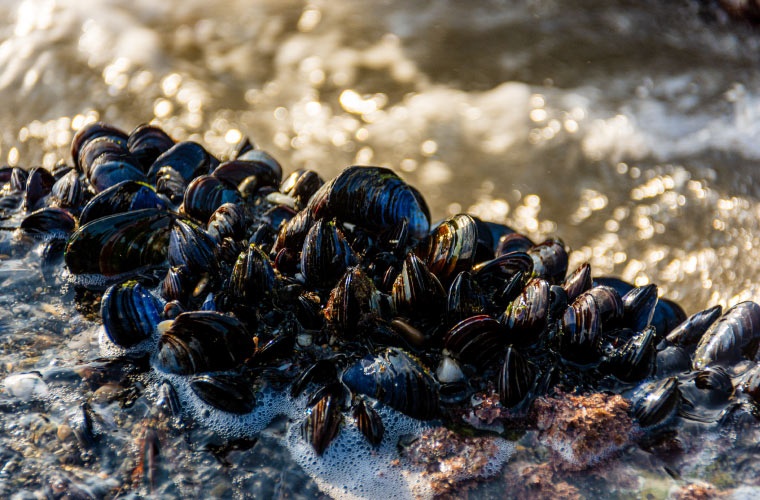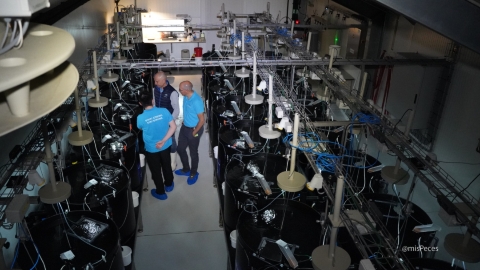
A team of researchers from the Aragon Institute of Nanoscience and Materials (INMA-CSIC-UNIZAR) has developed an innovative adhesive inspired by mussels, capable of sticking effectively to both metallic surfaces and biological tissues. The findings, recently published in the journal Advanced Functional Materials, pave the way for groundbreaking applications in surgical medicine and sustainable industrial adhesives.
Mussels have specialised proteins that allow them to attach to underwater rocks for extended periods. These proteins contain a chemical group called catechol, derived from the amino acid L-DOPA, which forms strong chemical bonds with a variety of surfaces. Inspired by this natural mechanism, the researchers mimicked these structures in the lab by integrating catechol groups into synthetic polymers.
The adhesive employs linear-dendritic block copolymers (LDBCs), which combine a dendritic core with linear polymer chains. This advanced structure enhances the density of catechol groups at the surface, significantly boosting adhesive strength. Laboratory tests revealed that these adhesives can achieve bonding strengths of up to 7 MPa on aluminum, comparable to leading commercial products like Gorilla Glue and Super Glue.
Promising medical applications
One of the project’s key achievement is the adhesive’s performance on pig skin, a biological model used to replicate human tissue. The Pluronic-based polymers, which self-assemble into micelles and hydrogels, demonstrated adhesion comparable to Tisseel, a widely used surgical adhesive. This development offers a less invasive alternative to traditional sutures, with the potential to speed up healing minimize infection risks during surgical procedures.
Unlike conventional adhesives, this new material is water-soluble, eliminating the need for toxic chemical solvents. This not only enhances its safety in application but also reduces environmental impact, making it a strong candidate for more sustainable industrial use.
This work, carried out in collaboration with Professor Jonathan Wilker from Purdue University, is part of an international project funded by the European Union through a Marie Sklodowska-Curie research grant. The team is already working on further advancements and plans to patent the technology to bring it to market.
Reference:
Lancelot, A., Meger, M.E., Guerreiro Gómez, E., Sierra, T., Wilker, J.J. Adhesion of Catechol-Functionalized Linear-Dendritic Block Copolymers: Dendritic Effect, Self-Assembly, and Bioadhesion. Advanced Functional Materials (2024). DOI: 10.1002/adfm.202413398


